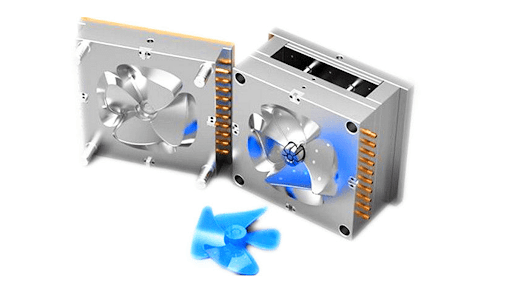
The aluminium casting manufacturing process is the process many companies choose for a variety of applications. For financial, logistical, and technical reasons, our process allows you to gain an edge.
1. Flexible quantity
Another way Aluminium Moulds Manufacturer can meet the most stringent requirements is to use flexible production. The activities of some of the castings shown above range from 250 pieces/year to over 100,000 pieces/year. Both are made possible by an innovative mould design that strikes a good balance between tooling and unit costs.
2. High strength
In the permanent moulding process, molten aluminium is poured into a mould to cool the aluminium rapidly. This solidifies the metal into a texture of very fine particles free of porosity and trapped gas. This gives our castings the advantages of superior metallurgical properties, high-pressure resistance, and strength of over 15% over sand alloy-to-alloy castings.
3. Less processing
Machining is a costly task. Our goal is to minimize secondary machining and its costs by providing tight dimensional control, smooth finishes, and perfect reproducibility as a manufacturing engineer. With proper mould design, the surface can be moulded very flat and may not have drafts or tapers. Over and over again, the transition from other processes to permanent moulds has dramatically reduced our customers' machining costs.
4. Low cost
By reducing machining, Aluminium Moulds Manufacturer offers your customers lower unit prices and our skilled mould shops and engineers minimize their investment in tools.
5. Moulded insert
One of the most unique advantages of our permanent moulding process is the ability to mould moulded inserts. As you can see, the casting above is cast with stainless steel inserts, providing a very hard and wear resistant surface while keeping the rest in lightweight aluminium. Castings with four brass inserts with threaded holes are designed to provide durable and wear resistant threads. In large numbers, moulded screw inserts can be even cheaper than CNC drills or thread cutting.
6. Fine surface finish
Aluminium Moulds Manufacturer castings have a fine and smooth finish that is sufficient for O-ring seals and gaskets in many applications. They are also smooth enough to be placed on metal surfaces in mating conditions. In addition, our castings are always clean and have a silvery appearance, minimizing the need for costly tasks such as polishing and mass finishing. In addition, if desired, our castings can be easily tumbled, painted, plated, anodized, e-coated, polished, and cast with clear letters and logos.
7. Close tolerances
Because our castings are made in moulds, the dimensional variation between parts is negligible and tight tolerances are consistently maintained. Our ability to achieve the highest precision and precision has allowed us to successfully cast many parts that have been used without machining, leading to significant savings for our customers.
8. High quality
Process control and advanced engineering are the keys to ensuring high quality casting. This is probably why Aluminium Moulds Manufacturer exceeds industry standards for internal scrap and failure rates.
In summary, Aluminium Moulds Manufacturer aims for zero defects by continuously monitoring all processes and investing painstaking efforts in tool development and design.
9. Complex shape
Moulds are machined from high-grade steel blocks. Undercuts are routinely cast with a sand core, and in some cases, without it. Fully machined cavities, complex coring techniques, and state-of-the-art moulding make complex aluminium parts a daily routine.
10. Lightweight
Some aluminium alloys are stronger than steel, but most are a little weaker. However, the lack of toughness that aluminium makes up for by total weight is that aluminium is much lighter than steel. Steel weighs about 2.5 times more than aluminium, and aluminium is the winner in the safety arena when building, handling, and setting up moulds.
11. Versatile
A handful of blow mould shops can design and build complex in-mould secondary, decoration, finishing, and assembly tasks for aluminium tools. Proper execution of these systems provides Six Sigma reproducibility and can significantly reduce the final product cost.
Conclusion:
Functional performance varies greatly depending on the shop, so please refer to it.
Let's go with a Novel Mould that is willing to discuss the example's long-term performance in the mould.